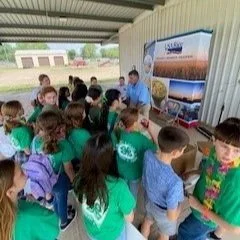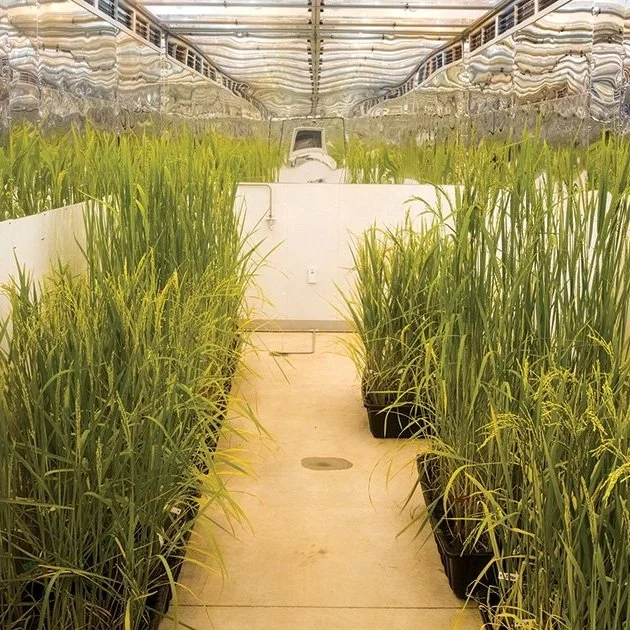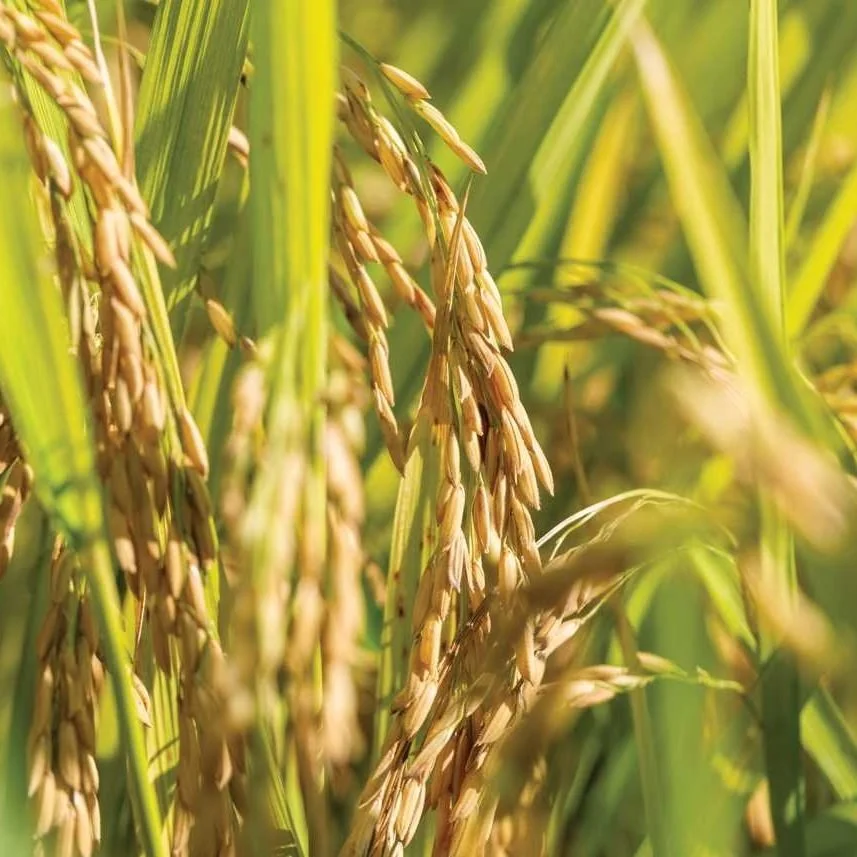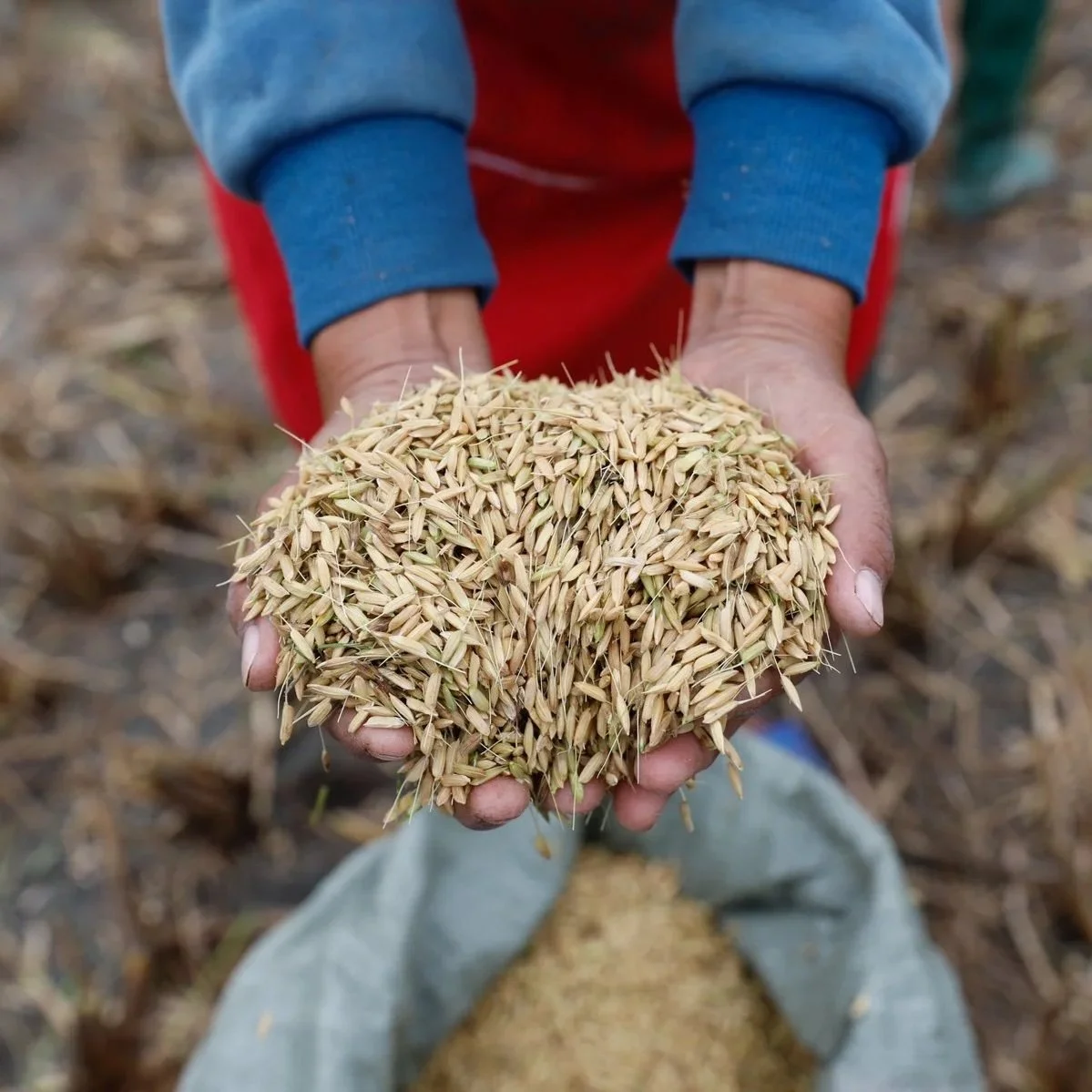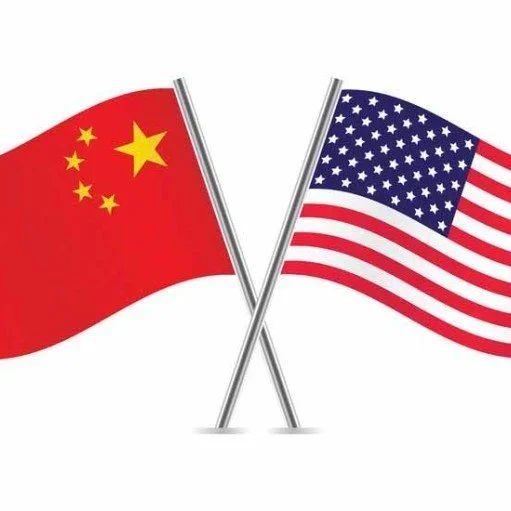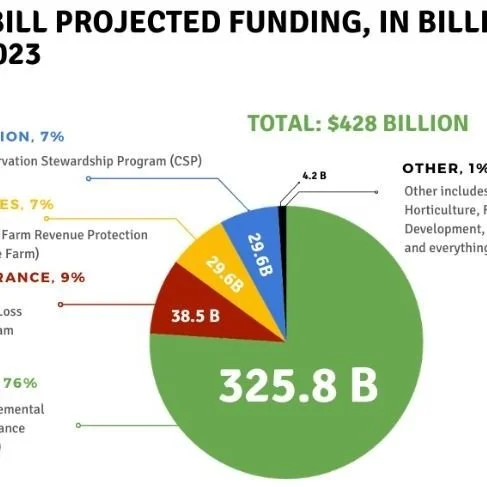The Director of the Rice Foundation, Dr. Steve Linscombe, discusses the staple food source for half of the world population.
Read MoreIf I was to sum the first session of our Leadership Class in a single sentence, it would be: You don’t know how much you don’t know until you are shown. I entered into this program near the upper age limit and frankly, nearly missed my opportunity.
Read MoreLouisiana rice farmers are finishing up their planting while the weather is good!
Read MoreA fungus that plagues rice crops worldwide gains entry to plant cells in a way that makes it vulnerable to simple chemical blockers, a discovery that could lead to new fungicides to reduce substantial annual losses of rice and other valuable cereals.
Read MoreThis past week, the Louisiana State University Ag Center in Jeff Davis Parish hosted their annual 4-H Achievement Awards Day to honor ag students for their work over the past year.
Read MoreLouisiana State University is the lead institution on the grant to improve the sustainability and profitability of rice farming through research innovations. Jai Rohila, a research agronomist for USDA’s Agricultural Research Service based at the Dale Bumpers National Rice Research Center in Stuttgart, is also involved in the grant.
Read MoreLouisiana rice farmers are taking advantage of good weather and are finishing up their planting. Farmers had planted more than 75% of the state's intended acreage by the first of April. LSU AgCenter correspondent Craig Gautreaux has the story from southwest Louisiana.
Read MoreCommodity markets function in a complex atmosphere that includes the economic principles of supply and demand but also murkier layers of geopolitics.
The current situation for rice includes those issues along with a miasma of questionable reports, global turmoil, and violence.
Milo Hamilton, president and co-founder of Firstgrain, Inc., cut through some of the fog at the recent Mid-South Farm and Gin Show in Memphis.
Read MoreRice is arguably the world's most important staple crop. About half of the global population depends on it for sustenance.
But, like other staples such as wheat and corn, rice is cultivated annually. That means replanting the fields year after year, at huge cost to both the farmers and the land. For years, scientists have been tinkering with rice strains to create a perennial variety – one that would regrow after harvest without the need to be resewn.
Read MoreFour universities are participating in an effort through the US Department of Agriculture (USDA) to improve the sustainability and profitability of rice farming as the staple grain grapples with extreme weather and climate challenges.
Scientists at Louisiana State University (LSU), the University of Arkansas, Mississippi State University (MSU) and Texas A&M University are part of a team awarded a four-year $10 million grant by the USDA’s National Institute of Food and Agriculture.
Read MoreThe Louisiana Rice Research Board was created by statute to conduct a program of research for the benefit of the Louisiana rice industry. Rice producers are assessed five cents per hundred weight at the first point of sale. The Louisiana Department of Agriculture and Forestry collects the assessments and remits to the Board.
Read MoreThis Feb 3, 2023, enhanced-color image from Landsat 9 highlights a green and blue patchwork pattern in flooded rice fields in southwestern Louisiana. Raised levees used for water management form the grid pattern between the fields, which appear dark blue.
Read MoreScientists at Mississippi State are part of a multi-institutional, $10-million effort to improve the sustainability and profitability of rice farming in the face of climate change.
Read MoreDue to a strict zero-COVID policy, USA Rice has been unable to travel to China for the past several years. Those restrictions are now being relaxed and USA Rice contractors made an in-person trip here last month to meet with COFCO Group Beijing International Trading Co., Ltd (BDH) and China Agricultural Association for International Exchange (CAAIE).
Read MoreUSA Rice and all seven state rice organizations joined 400 other farm and agricultural groups in a letter to the leadership of the House and Senate Budget Committees on Tuesday calling for additional funding for Congress to write the 2023 Farm Bill.
The USA Rice Farmers, the leading national organization representing rice farmers in all rice producing states, adopted policy this past December in favor of additional Farm Bill resources. Particular areas where funding is needed are the commodity title to improve the farm safety net and the trade title to increase funding for critical international promotion programs.
“USA Rice strongly supports additional funding for the Farm Bill as Congress begins its work on the 2023 Farm Bill,” said Curtis Berry, a Mississippi rice farmer and chair of the USA Rice Farmers. “Having an adequate farm safety net in the Price Loss Coverage program is the key priority for USA Rice and the additional Farm Bill funding would be instrumental to ensuring the program’s improvement.”
Read More




